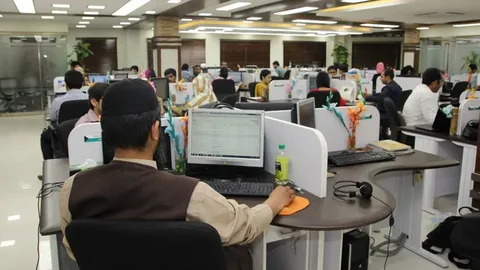Over the last decade, Pakistan has witnessed a remarkable transformation in its software development sector. Once considered a nascent player in the global technology arena, the country has evolved into a burgeoning hub for software development, fueled by a combination of talented professionals, supportive government initiatives, and an increasing demand for digital solutions. This article explores the multifaceted rise of software development in Pakistan, highlighting the factors that have contributed to this growth and its implications for the future.
1. A Growing Talent Pool
At the heart of Pakistan’s software development success is its young and dynamic workforce. With a population of over 240 million, approximately 60% are under the age of 30, creating a vast pool of potential talent. Numerous universities and technical institutes across the country offer degrees in computer science, software engineering, and information technology. Institutions like the National University of Sciences and Technology (NUST) and Lahore University of Management Sciences (LUMS) have produced highly skilled graduates who are eager to enter the tech industry.
This influx of educated professionals has been crucial in meeting the demands of the software development sector. Many graduates are not only well-versed in programming languages such as Python, Java, and C++, but also possess knowledge of contemporary technologies like artificial intelligence (AI), machine learning (ML), and data science. As a result, Pakistan is witnessing a growing number of skilled developers ready to contribute to both local and international projects.
2. Freelancing: A Gateway to Global Markets
Pakistan is among the top countries for freelancing, thanks to the proliferation of online platforms such as Upwork, Fiverr, and Freelancer. This trend has provided software developers with access to global markets, allowing them to work on international projects without the need to relocate. The rise of freelancing has not only generated significant income for many individuals but has also helped elevate Pakistan’s reputation as a reliable destination for software development services.
Freelancers in Pakistan often work with clients from various countries, gaining valuable experience and exposure to diverse work cultures and business practices. This global exposure helps enhance their skills and makes them more competitive in the ever-evolving tech landscape. According to a report by Payoneer, Pakistani freelancers generated over $400 million in revenue in 2021, reflecting the immense potential of this segment.
3. Government Initiatives and Support
The Pakistani government has recognized the potential of the software development sector and has implemented various initiatives to support its growth. Key measures include the establishment of technology parks, incubation centers, and special economic zones aimed at fostering innovation. The government’s Digital Pakistan initiative seeks to enhance the country’s digital infrastructure, promote entrepreneurship, and encourage the use of technology in various sectors.
Moreover, the government offers tax incentives and funding opportunities for startups, making it easier for entrepreneurs to launch and grow their businesses. Organizations such as the Pakistan Software Export Board (PSEB) are actively involved in promoting the country as a viable destination for software development and have been instrumental in facilitating partnerships between local firms and international clients.
4. The Flourishing Startup Ecosystem
In recent years, Pakistan has witnessed the emergence of a vibrant startup ecosystem, particularly in major cities like Karachi, Lahore, and Islamabad. Startups are increasingly focusing on developing innovative software solutions, ranging from mobile applications to enterprise software. This entrepreneurial spirit is fueled by a growing number of accelerators and incubators, such as Nest I/O and Techstars, which provide mentorship, resources, and funding to budding entrepreneurs.
These startups not only create jobs but also contribute to the local economy by attracting foreign investment. According to a report by Invest2Innovate, Software Development in Pakistan raised over $365 million in funding in 2021 alone, marking a 400% increase compared to the previous year. This surge in investment highlights the confidence investors have in the potential of the software development sector in Pakistan.
5. Increased Demand for Digital Solutions
The global shift towards digitalization has created a heightened demand for software solutions across various sectors, including healthcare, education, finance, and e-commerce. Businesses are increasingly relying on technology to streamline operations, improve customer engagement, and enhance overall efficiency. Pakistani companies are stepping up to meet this demand, developing applications and platforms that cater to both local and international markets.
For instance, the e-commerce sector in Pakistan has seen exponential growth, with platforms like Daraz and Foodpanda leading the way. These companies rely heavily on robust software solutions to manage their operations, from logistics to customer service. As a result, there is a growing need for skilled software developers to create and maintain these systems.
6. Focus on Emerging Technologies
As the software development landscape evolves, Pakistani developers are increasingly focusing on emerging technologies. The country is witnessing a surge in interest in areas such as artificial intelligence, machine learning, blockchain, and the Internet of Things (IoT). Many local tech companies are investing in research and development to create innovative solutions that leverage these technologies.
For example, several startups are exploring blockchain applications for various use cases, including supply chain management and financial services. This focus on cutting-edge technologies positions Pakistan well for future opportunities, enabling local firms to compete in the global tech market.
7. Networking and Community Building
A thriving community of tech enthusiasts is emerging in Pakistan, fostering collaboration and innovation in the software development sector. Events such as hackathons, tech meetups, and conferences are becoming increasingly popular, providing opportunities for developers to network, share knowledge, and showcase their skills.
Organizations like Code for Pakistan and TechJuice are actively involved in promoting a culture of collaboration and mentorship within the tech community. These initiatives help create an ecosystem where developers can learn from one another, collaborate on projects, and gain insights into industry trends.
https://www.youtube.com/@verticalsols
8. Challenges Ahead
Despite the remarkable growth of software development in Pakistan, several challenges remain. The country faces issues such as a lack of infrastructure, bureaucratic hurdles, and limited access to funding for early-stage startups. Additionally, the tech industry must contend with competition from other countries in the region, such as India and Bangladesh, which are also making strides in software development.
Moreover, ensuring that the education system keeps pace with industry needs is crucial. There is a growing need for institutions to adapt their curricula to include emerging technologies and practical skills that align with market demands.
9. Looking Forward
The future of software development in Pakistan appears promising. As the global demand for digital solutions continues to rise, the country is well-positioned to capitalize on its strengths. With a growing talent pool, supportive government initiatives, and an increasingly vibrant startup ecosystem, Pakistan has the potential to become a leading player in the global software market.
To sustain this growth, it is essential for stakeholders—including government, educational institutions, and industry leaders—to work together to address existing challenges and invest in the future of technology. By fostering a culture of innovation and continuous learning, Pakistan can further enhance its position as a prominent destination for software development.
Conclusion
The rise of software development in Pakistan is a remarkable story of transformation fueled by a combination of factors. With a young, skilled workforce, a thriving freelancing community, supportive government policies, and a growing startup ecosystem, the country is making significant strides in the tech industry. As it continues to evolve, Pakistan is poised to become a key player in the global software development arena, contributing to innovative solutions that meet the needs of the future.


